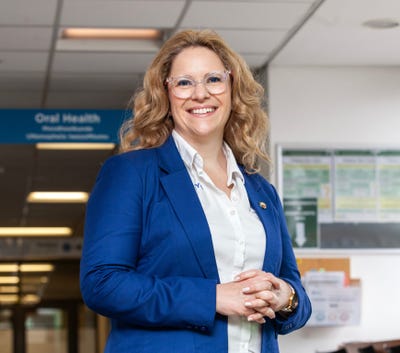South Africa charts an ethical path for AI in public services
The Western Cape has unveiled its first AI policy to balance innovation with human rights, promising wider access to care and reduced inequality.

The use of artificial intelligence (AI) in public healthcare can be enormously beneficial in driving efficiency and improving service delivery. This is important in a resource-constrained system where demand outweighs capacity. South Africa has only 0.31 doctors per 1,000 people, far below the World Health Organization’s benchmark.
At the same time, the use of AI in a sensitive environment like healthcare, which is a human right and one where privacy and dignity are paramount considerations, carries major risks. The use of AI requires balancing the need and benefit of innovation while taking care to ensure that sufficient guardrails are in place to protect basic rights such as privacy, equity and equitable access to services, while building trust and confidence in digital tools.
The Western Cape Government has recently approved its first provincial policy framework on AI to establish these ethical guardrails.
AI as a new frontier for healthcare access
AI is transforming medicine worldwide, offering unprecedented opportunities to improve both quality and accessibility of care. But it is not an end in itself. It is a powerful tool that always requires human judgement, ethical safeguards, and a clear focus on patient well-being.
Our newly approved framework is grounded in five globally recognised ethical principles:
Beneficence: AI must serve the public good.
Non-maleficence: It must avoid harm by protecting privacy and reducing bias.
Human oversight: People, not machines, must remain in control.
Fairness: Algorithms must never entrench or create discrimination.
Transparency: Citizens deserve to know if we are making use of AI, why we are using it, and who is accountable.
The human rights imperative to act
The ethical question is not only how we adopt AI, but also what happens if we don’t.
Choosing not to use available AI tools that can save lives, reduce waiting times, and direct scarce resources where they are needed most, has real human consequences. Failing to act would deepen inequality and deny people access to care they deserve.
In a resource-constrained health system, AI allows us to scale solutions more quickly and at lower cost. If we do not actively engage with AI, we risk falling behind while well-resourced countries and private health providers surge ahead.
A glimpse of what’s possible: Khayelitsha shows the impact of AI
We have already seen what AI can achieve. Khayelitsha is the largest township in Cape Town and one of the fastest-growing in South Africa. Despite its origins in systemic segregation and other ongoing challenges, Khayelitsha has evolved into a hub of resilience, creativity, and entrepreneurship. In this township, with a population of approximately half a million people, diabetes is a major public health concern.
Local health facilities see very high rates of diabetes, which has added significant pressure to specialist eye-care services. Diabetics are at increased risk of several serious eye conditions, including diabetic retinopathy, which is a leading cause of blindness in adults and often progresses without symptoms until vision is affected.
With AI-enabled retinal screening, staff at four primary healthcare clinics in the area have been trained to take retinal images. These images are analysed by an AI diagnostic tool with clinical reasoning, which provides a probability of diabetic retinopathy and, in addition, an indication of severity. Patients needing urgent attention are directly booked to see an ophthalmologist for definitive laser treatment (if needed) at Khayelitsha District Hospital, within the shortest time possible, depending on severity.
This approach prioritises early detection, while ensuring patients with less urgent conditions receive timely primary care in their own communities. It is a practical example of how AI can expand access, reduce inequality, and protect human dignity.
Opportunities: rehumanising healthcare and building efficiency
The Western Cape’s AI policy framework will enable opportunities to:
Free doctors and nurses from administrative burdens by using tools like medical scribes while increasing patient-facing time with higher-quality, more human interactions.
Reduce medical errors, as AI decision-support systems have already demonstrated a more than 70% reduction in medical errors in pilot projects in East Africa.
Improve equity, as AI can operate across languages, enabling real-time translation in consultations.
Stimulate innovation while delivering more efficient public services.
A future we must choose
The lesson from Khayelitsha is clear: when used thoughtfully, AI strengthens the work of nurses, doctors, and specialists, and does not replace them. It ensures that those who need urgent care get it quickly, and that even our most vulnerable residents are not left behind.
The Western Cape is committed to becoming a smart government that uses technology to serve people better.
What matters is using it with integrity, transparency, and respect for human rights. If we lead with these values, AI will not only transform our health system—it will help us create a future where every resident, regardless of income or geography, can access the care they need.
References available upon request.

WHX Cape Town
Oct 13, 2026 TO Oct 15, 2026
|Cape Town, South Africa
Join us at WHX Cape Town—where a trusted legacy meets the future of healthcare. WHX Cape Town brings together local talent and global pioneers to explore breakthrough innovations, build transformative partnerships, and shape the future of care from a region rich in ideas and opportunity.


